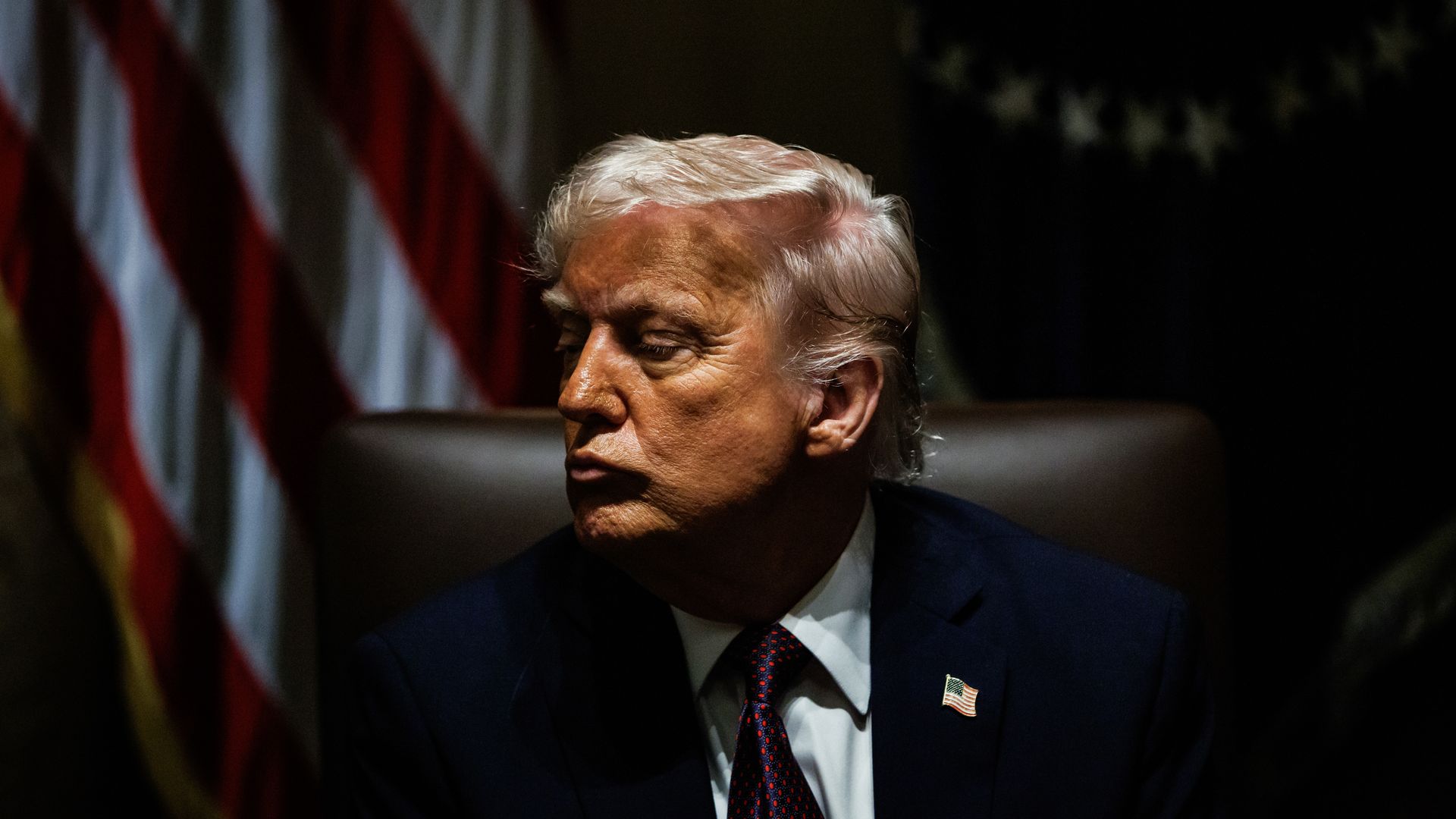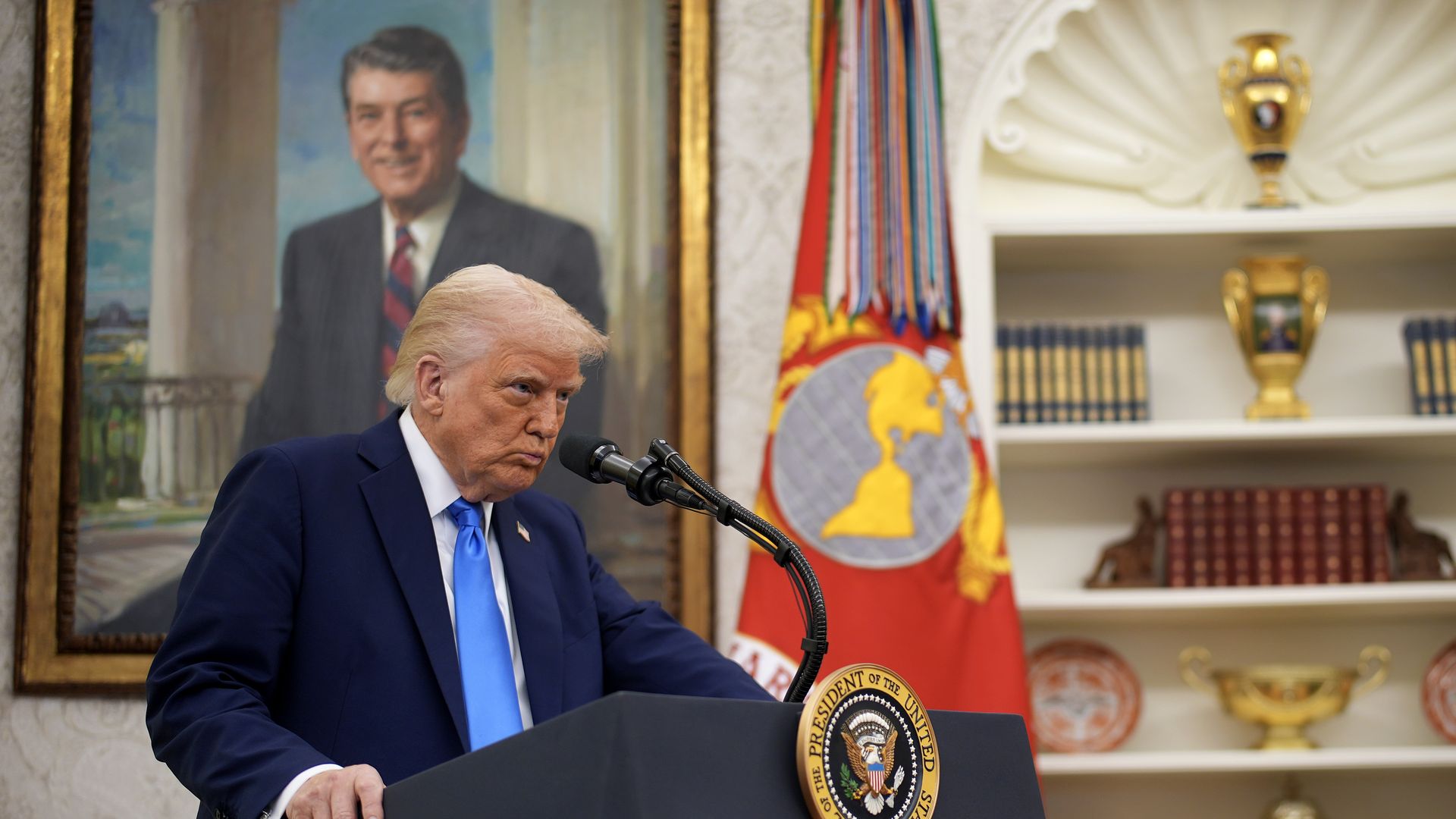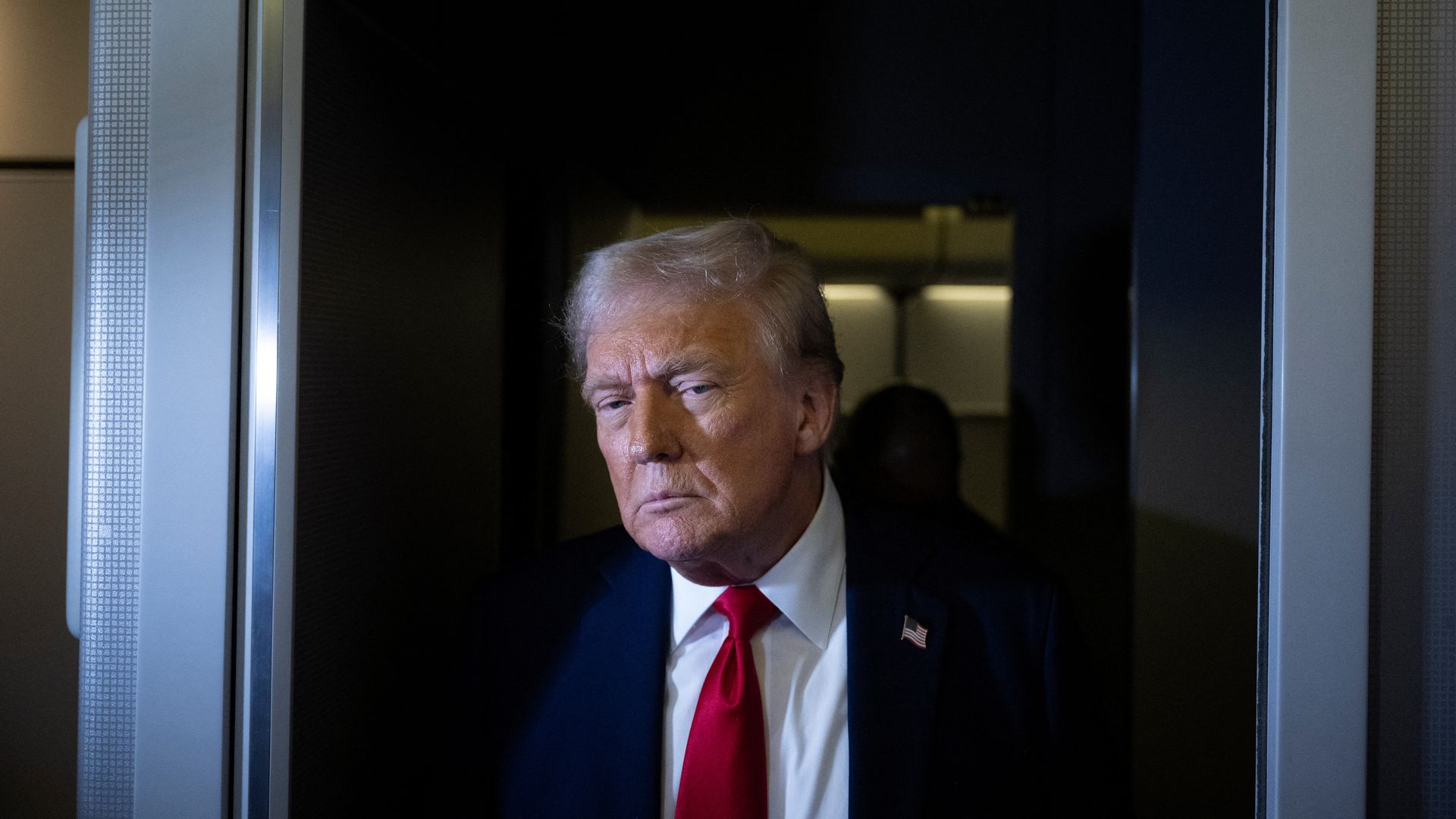- รับลิงก์
- X
- อีเมล
- แอปอื่นๆ

The 22nd Amendment: Why Trump can't be elected a third time
President Trump during a cabinet meeting at the White House on Monday, March 24. Photo: Samuel Corum/Sipa/Bloomberg via Getty Images
President Trump and his allies for months have teased a third term for the already twice-elected commander-in-chief.
- Over the weekend, the president confirmed he's "not joking" about yet another term.
Why it matters: The 22nd Amendment bars presidents from being elected to a third term. Amending the Constitution is an arduous path that's unlikely to succeed — but Trump told NBC News there are "methods" by which he could serve again.
- There is virtually no possibility that the required two-thirds of both chambers of Congress and three-quarters of the U.S. states would vote to abolish the 22nd Amendment.
- Two-thirds of U.S. states can also call for a constitutional convention to propose an amendment, but 38 of 50 states still need to ratify any amendment.
- White House communications director Steven Cheung reiterated in a statement to Axios that Trump thinks "it's far too early to think about" a third term.
Driving the news: But scholars tell Axios they're taking Trump's comments seriously.
- "Why would there be a 22nd Amendment if it's inoperative?" asked Kimberly Wehle, a University of Baltimore law professor and constitutional law expert.
- She continued, "If the whole time it was meant to just set up some kind of game that could be outmaneuvered through tricky lawyering, that to me is not a legitimate or ethical position."
Here's what to know about the 22nd Amendment.
What does the 22nd Amendment say?
The 22nd Amendment states that "no person shall be elected to the office of the President more than twice."
- It was proposed in 1947 after former President Franklin D. Roosevelt's death during his fourth term and was ratified in 1951.
Zoom out: It also sets limits for those who assume the presidency, such as in the case of the president dying before the end of their term.
- If a vice president takes over for their No. 1 in an unfinished term and serves for more than two years, they can only run for election once.
Could Vance hand off the reins?
Trump agreed with NBC News' Kristen Welker that one method would be to flip-flop the ballot of 2024, with Vice President Vance as president and Trump as vice president.
- Once if office, Vance would then step down as president and Trump would take over for a third term.
- The question of whether a twice-elected president could serve a third term via elevation from the vice presidency, some scholars note, hinges on a textual debate over whether the 22nd Amendment bars a person from being "elected" more than twice rather than serving more than twice.
What they're saying: "The straight textual reading suggests that the 22nd really only restricts individuals who are acquiring the office ... through being elected," said Bruce Peabody, a Fairleigh Dickinson University professor who has explored how a twice-elected president could return to the Oval Office.
- The 22nd Amendment, "does have a significant bite," Peabody contended, noting it bars twice-elected presidents from "the most common method" of entering office (election).
Some see the 12th Amendment, which says "no person constitutionally ineligible" to be president can be vice president, as a barrier to a twice-elected president becoming the VP.
- That's "an important argument to make," Peabody said.
- But the question of whether a twice-elected president is ineligible to be elected versus ineligible to serve comes up again.
Yes, but: If Trump were to make it on state ballots for a third term— whether in the No. 1 or No. 2 slot — lawsuits would be sure to follow.
- The case could be reminiscent of recent precedent when the Supreme Court ruled last year that Trump could not be barred from Colorado's primary ballot because Congress, rather than the states, was responsible for enforcing the insurrectionist clause of the 14th Amendment.
The bottom line: There's also the possibility Trump could interfere in a presidential transition.
- "If ... he doesn't comply with the Constitution and believes, to whatever reason, that he should stay in power, the big question is, who's going to stop him?" Wehle said.
Go deeper: House GOP measure would let Trump seek third term
Trump says he's "not joking" about seeking a 3rd term
President Trump speaks during a swearing-in ceremony in the Oval Office on March 28. Photo: Andrew Harnik/Getty Images
President Trump told NBC News Sunday "there are methods" by which he could serve a third term in the White House — a highly improbable idea some MAGA allies have endorsed.
The latest: When asked aboard Air Force One about his comments to NBC that he's "not joking" about a third term, Trump said "I'm not looking at that but I'll tell you, I have had more people ask me to have a third term," according to a White House pool report.
Top Republicans shrug off Trump's third-term musings
President Trump speaks to reporters on Air Force One while on a return trip to Washington, D.C., on March 30. Photo: Brendan Smialowski/AFP via Getty Images
Top Republicans in Congress are dismissing out of hand President Trump's suggestion that he is "not joking" about running for a third term.
Why it matters: While they didn't push back forcefully, Republicans are at least clear-eyed about the severe Constitutional and political hurdles the president would face.
- รับลิงก์
- X
- อีเมล
- แอปอื่นๆ


ความคิดเห็น
แสดงความคิดเห็น